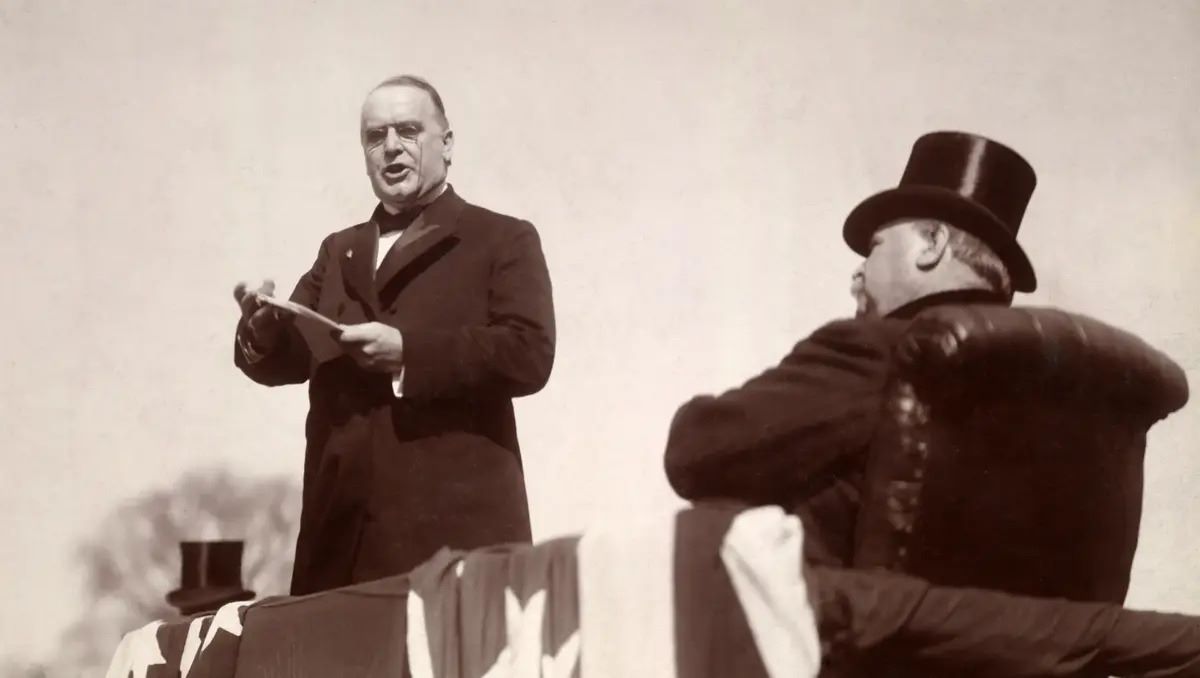
Are you fascinated by the world of mystery, crime, and suspense? If so, then the realm of detectives is sure to captivate your imagination. From Sherlock Holmes to Nancy Drew, detective stories have enthralled readers for centuries.
In this article, we will explore 14 enigmatic facts about detectives that you may not be aware of. Whether you’re a fan of classic whodunits or modern crime-solving dramas, these facts will shed light on the intriguing world of detectives and their methods of unraveling mysteries.
So, grab your magnifying glass, put on your detective hat, and join us as we delve into the fascinating world of detectives and discover some of the lesser-known facts about these enigmatic sleuths.
Key Takeaways:
- Detective fiction has a rich history dating back to the 19th century, with iconic characters like Sherlock Holmes and Hercule Poirot captivating readers with their brilliant deductive reasoning and captivating personalities.
- Detectives rely on keen observation, forensic science, and the power of deduction to unravel even the most complex cases, showcasing the thrilling and unpredictable nature of detective work.
The Evolution of Detective Fiction
Did you know that detective fiction dates back to the early 19th century? Edgar Allan Poe’s “The Murders in the Rue Morgue,” published in 1841, is considered the first true detective story. Since then, the genre has captivated readers with its suspenseful plotlines and clever sleuths.
The Birth of Iconic Detectives
Sherlock Holmes, created by Arthur Conan Doyle, and Agatha Christie’s Hercule Poirot are two of the most beloved fictional detectives. Their brilliant deductive reasoning and captivating personalities have made them timeless icons in the detective genre.
Forensic Science and Detective Work
Advancements in forensic science have revolutionized detective work. From fingerprint analysis to DNA profiling, these scientific techniques have helped solve countless cases, ensuring that no mystery goes unsolved.
The Art of Observation
One of the essential skills of a detective is keen observation. Detective work often involves paying attention to minute details that others might overlook. Every clue, no matter how small, can be the key to cracking the case.
Debunking the Myth of the “Perfect Crime”
While criminals may think they can commit the “perfect crime,” detectives are skilled at unraveling even the most complex cases. With their relentless pursuit of justice, they bring light to dark secrets and ensure that the guilty face the consequences of their actions.
The World of Undercover Detectives
Undercover detectives play a vital role in infiltrating criminal organizations and gathering valuable intelligence. Their ability to adapt to different personas and maintain their cover is crucial in solving complex cases.
The Influence of Detective Novels on Popular Culture
Detective novels have had a profound impact on popular culture. From movies and TV shows to video games and board games, the detective genre continues to captivate audiences and inspire new forms of storytelling.
The Psychology of Criminal Profiling
Criminal profilers analyze the behavior and motives of criminals to help identify and apprehend them. This field of study combines psychology, criminology, and detective work to create a profile that assists investigators in narrowing down their search.
The Role of Private Investigators
Private investigators often work outside the confines of law enforcement agencies. They are hired by individuals or organizations to uncover information, conduct surveillance, and gather evidence in various types of cases.
The Impact of Technology on Detective Work
Technology has transformed detective work in numerous ways. From surveillance cameras and GPS tracking devices to advanced computer algorithms, detectives now have powerful tools at their disposal to aid in their investigations.
The Thrill of Cold Case Investigations
Cold case investigations involve reopening unsolved crimes from the past. Though challenging, these investigations provide detectives with an opportunity to bring closure to victims’ families and deliver long-overdue justice.
The Power of Deduction
Just like Sherlock Holmes, detectives rely on deductive reasoning to piece together clues and solve complex cases. Through logical analysis and critical thinking, they can uncover the truth lurking beneath a web of deception.
The Unsung Heroes of Detective Work
While detectives often receive the spotlight, they are supported by a team of dedicated professionals. Crime scene technicians, forensic analysts, and legal experts all play critical roles in ensuring that justice is served.
The Unpredictability of Detective Work
No two cases are the same in the world of detectives. Each investigation presents its unique challenges, requiring detectives to adapt their strategies and employ their expertise to uncover the truth.
These 14 enigmatic facts about detective work offer just a glimpse into the captivating world of solving mysteries. From the iconic characters that have become household names to the scientific advancements that continuously push the boundaries of investigation, the realm of detectives never fails to fascinate and inspire.
Conclusion
In conclusion, detectives are fascinating individuals who work tirelessly to solve mysteries and bring justice to the world. These enigmatic professionals possess a unique set of skills and characteristics that set them apart from other law enforcement personnel. From their keen observational abilities to their sharp deductive reasoning, detectives are the epitome of brilliance and intuition.Throughout history, detectives have captivated our imaginations through literature, movies, and television shows. Their stories have inspired countless individuals and even influenced real-life investigative techniques. Whether it’s Sherlock Holmes unraveling complex puzzles or modern-day detectives using advanced forensic technologies, the appeal of these sleuths remains timeless.If you have ever wondered about the intriguing world of detectives or are considering a career in law enforcement, delving deeper into their enigmatic nature is sure to provide valuable insights.
FAQs
Q: What is a detective?
A: A detective is a law enforcement professional responsible for investigating crimes, gathering evidence, and solving mysteries.
Q: What skills are required to become a detective?
A: Detectives need a combination of skills including strong observation, critical thinking, problem-solving, communication, and investigative skills.
Q: What is the difference between a detective and a police officer?
A: While both detectives and police officers work in law enforcement, detectives specialize in investigating crimes and gathering evidence, whereas police officers primarily focus on maintaining public safety.
Q: How do detectives solve mysteries?
A: Detectives solve mysteries through a combination of careful analysis, gathering evidence, interviewing witnesses, utilizing forensic techniques, and applying their intuition and deductive reasoning.
Q: Are detectives always portrayed accurately in movies and books?
A: While movies and books often romanticize the profession, real-life detectives face challenges and limitations that may not be faithfully depicted in fictional portrayals.
Q: Do detectives work alone or in teams?
A: Detectives may work independently on certain cases but often collaborate with other detectives, police officers, forensic experts, and other professionals to solve crimes.
Q: Can anyone become a detective?
A: Becoming a detective typically requires prior experience as a police officer and meeting specific requirements set by law enforcement agencies. Additional training and education may also be necessary.
Q: Are there different types of detectives?
A: Yes, there are specialized detectives such as homicide detectives, cybercrime detectives, undercover detectives, and more, each focusing on specific areas of investigation.
Q: What are some famous fictional detectives?
A: Some famous fictional detectives include Sherlock Holmes, Hercule Poirot, Nancy Drew, Miss Marple, and Philip Marlowe.
Q: Can detectives work on international cases?
A: In some cases, detectives may collaborate with law enforcement agencies from different countries to solve international crimes or track down suspects who have fled across borders.
Q: Is there a specific educational background required to become a detective?
A: While there is no specific educational requirement, many detectives have a background in criminal justice or a related field. Some agencies may also require a college degree.
Q: What is the role of technology in modern detective work?
A: Technology plays a crucial role in modern detective work, providing tools for forensic analysis, surveillance, data analysis, and communication.
Q: Are there any famous real-life detectives?
A: Yes, there have been many famous real-life detectives, such as Allan Pinkerton, who founded the Pinkerton National Detective Agency, and J. Edgar Hoover, who served as the director of the FBI for many years.
Q: What are the challenges of being a detective?
A: Some challenges of being a detective include long hours, high-pressure situations, emotional toll, and the constant need to stay updated with evolving crime trends and investigative techniques.
Q: Can detectives make mistakes?
A: Detectives, like any human, can make mistakes. However, their training, experience, and the use of proper investigative procedures minimize the chances of errors.
Detectives' enigmatic world captivates our imaginations, leaving us yearning for more intriguing insights. If you're craving additional fascinating mysteries, consider exploring the realms of metal detecting, where hidden treasures await discovery. For a lighthearted change of pace, delve into the hilarious antics of Ace Ventura, the quirky pet detective who never fails to entertain. Alternatively, join the adventures of Dr. David Q. Dawson, the clever mouse detective, as he solves perplexing cases in a world of miniature intrigue.
Was this page helpful?
Our commitment to delivering trustworthy and engaging content is at the heart of what we do. Each fact on our site is contributed by real users like you, bringing a wealth of diverse insights and information. To ensure the highest standards of accuracy and reliability, our dedicated editors meticulously review each submission. This process guarantees that the facts we share are not only fascinating but also credible. Trust in our commitment to quality and authenticity as you explore and learn with us.


